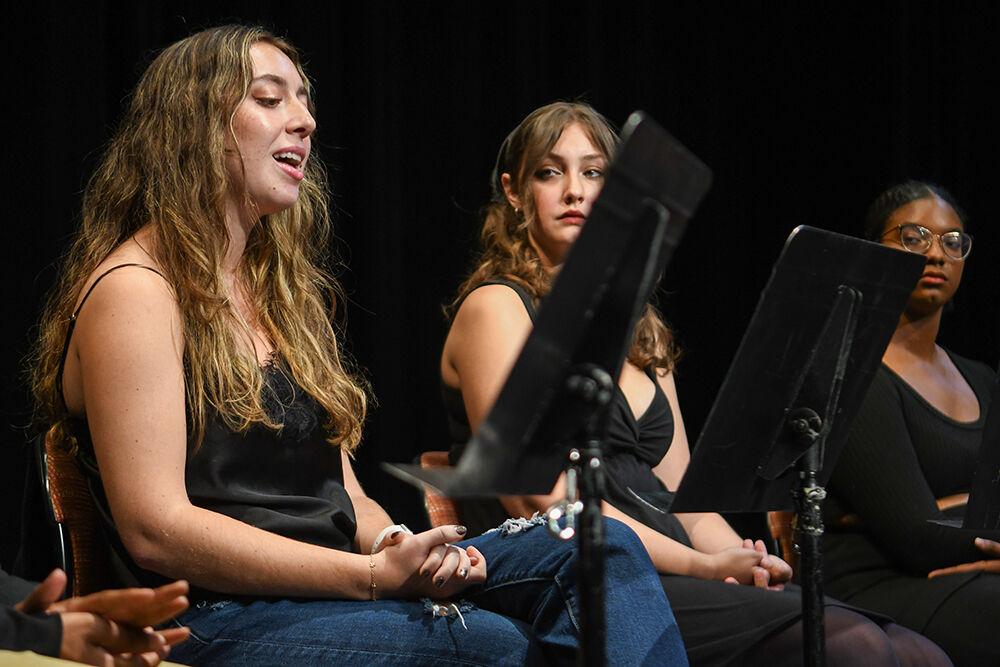An incisive word. The conviction of experience. Diction of great American authors echo off the walls of the Kennedy-McIlwee studio theater at the Frank Thompson Building. A university audience listens closely to the sound of suppressed works.
10 students gathered at Frank Thompson Hall to read excerpts from 13 banned or challenged books. Content centered around Black, neurodivergent, Indigenous American and queer experiences, with students eloquently relating the prose of authors like Toni Morrison, George M. Johnson and Mark Haddon.
Gabriel Morris, a third-year studying communication and public relations, read “I Know Why The Caged Bird Sings” by Maya Angelou, “Beloved” by Toni Morrison and “A Poem for Matthew Shepard” by Margot Kelley Rodriguez.
“A lot of banned books in my household were just books that are considered classics … books that my parents grew up reading, my grandparents had on their shelves.” Morris said. “[These books] are going over the processes of what’s gone on in my life, in my ancestors’ lives, and people in my family have actually experienced these things.”
Luna Shaffer, a third-year studying sustainable materials, read “The Hate U Give”by Angie Thomas and “The Absolutely True Diary of a Part Time Indian” by Sherman Alexie.
“I think it’s important to challenge your views when you read,” Shaffer said. “It’s important to have dissenting opinions so we can participate in civil discourse.”
The books have been challenged for many reasons, from being sexually explicit to showing depictions of racism and anti-police content. According to PEN America, last year was a record high for US censorship, with 1269 attempts to censor library books and resources, which is double the amount from 2021.
Sirish Saravanamuthu, a fourth-year studying business administration, read “The Bluest Eye” by Toni Morrison, which was challenged for violence and sexually explicit material.
“Sometimes censorship and these kind of things causes us to not be able to express our thoughts freely, but also be able to read creative books and explore other options about more serious topics,” Saravanamuthu said. “There are also books about very, very controversial topics that are also important for us to read to gain some knowledge about what’s going on in the world.”
There were depictions of graphic violence and drug use read aloud by the students, but the excerpts also related deep knowledge about personal experience.
“Reading the more intricate, the more detailed, the more difficult stuff — that’s where it’s most impactful,” Saravanamuthu said.
In its simplicity, the event dissented to the barrage of book bannings taking place in recent years and served as a reminder to pay attention to experiences that have been stigmatized through violence and marginalization.














